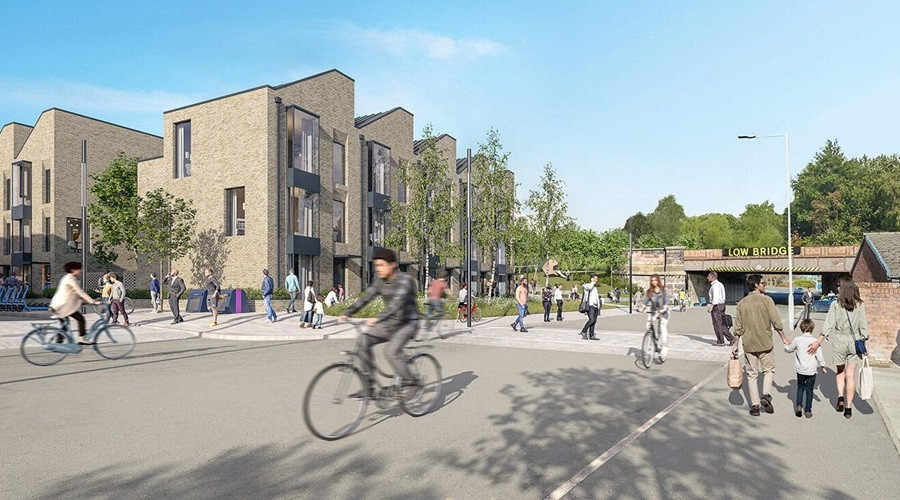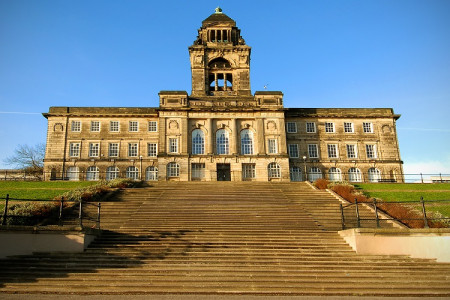Wirral to benefit from boost to City Region’s "Transport Revolution"
Wirral is due to see major investment in local transport following the Government's announcement of a massive funding injection across the country and city region.
The Liverpool City Region will see £1.6 billion to help deliver major rail upgrades, a new rapid transit network, and infrastructure to unlock one of the largest regeneration schemes in the country.
The funding was confirmed by the Chancellor ahead of this year’s Spending Review and represents the single largest investment in the region’s transport infrastructure to date.
Leader of Wirral Council, Cllr Paula Basnett, said:
This announcement is a hugely significant moment for our borough, as well as the wider Liverpool City Region. Investment in our rail infrastructure with a new station at Woodchurch would be a game changer for that area, providing extra public transport which experience shows has a massive and transformative impact on the local economy.
And the support for Hind Street will help us ensure we continue to unlock this key development which will provide much needed new housing on a disused brownfield site.
Projects funded will help drive economic growth, link communities and create opportunity across the whole region.
Secured through the City Region Sustainable Transport Settlement (CRSTS), this funding will accelerate LCR Mayor Steve Rotheram’s plans for a London-style public transport system - clean, integrated and accessible to all - while laying the groundwork for thousands of new homes, jobs and training opportunities.
At the heart of the plans is the largest-ever investment in local rail station infrastructure. Work will now progress on three new stations - Carr Mill in St Helens, Woodchurch in Wirral, and Daresbury in Halton - alongside committed schemes at Liverpool Baltic and a redeveloped Runcorn station.
These projects are central to the region’s ambition to expand the reach of the Merseyrail network, including new connections to Sci-Tech Daresbury – where a direct rail link is expected to create 8,000 new jobs – and, in the future, Wrexham, deepening economic ties with North Wales.
The region will also move forward with a commitment to deliver a new Rapid Transit network, offering fast, modern, and reliable services between Liverpool city centre, John Lennon Airport, and key locations in North Liverpool. Inspired by successful models like the Belfast Glider, this system will support wider regeneration, linking existing communities with opportunity and improving access to major destinations including Bramley Moore Dock.
This is part of a broader programme to transform the region’s bus network, supporting the introduction of a zero-emission fleet, new depot infrastructure, and the rollout of franchising - returning buses to public control for the first time in nearly 40 years.
Alongside these flagship schemes, the funding will help unlock a new city-scale regeneration project in North Liverpool and South Sefton, centred on the new Everton stadium. The scheme is expected to deliver more than 10,000 new homes, generate thousands of jobs, and transform public space through investment in active travel, upgraded highways and enhanced connectivity.
Beyond the three flagship projects, the funding will also back a number of schemes aimed at revitalising and reconnecting towns across the city region - including Bootle, Huyton, Kirkby and Southport - as part of a broader strategy to encourage a shift from car use to public transport and achieve the region’s Net Zero 2035 target.
Investment will also support the Hind Street corridor in Birkenhead, unlocking the regeneration of Wirral Waters, the Left Bank and Birkenhead town centre. The project will deliver infrastructure to support up to 1,500 homes on nearly 11 hectares of brownfield land, catalysing growth on the eastern side of the Mersey.
This significant new investment builds upon the Liverpool City Region Combined Authority's proven track record of successful transport delivery – from the roll-out of the region’s new train fleet, which is the most accessible in the UK, to the opening of new train stations including Headbolt Lane in Kirkby, which has connected more than 20,000 residents to the region’s network rail network for the first time.
Other major recent investments in the Liverpool City Region transport network include the purchase of 100 zero-emission double-decker electric buses; a £32 million transport interchange for St Helens town centre; £26 million for the first new Mersey Ferry in over 60 years; £150 million for new walking and cycling infrastructure; £15 million for a revamp of key city region gateway Runcorn station and £100 million for the new Liverpool Baltic rail station.
Steve Rotheram, Mayor of the Liverpool City Region, said:
This is a really big win for our area and for the 1.6m people who call it home.
It means new train stations where they’re needed most, better buses that actually turn up, and a new rapid transit system to help people get where they need to be - whether that’s for work, education, socialising or care.
For too long, too many of our communities have had to put up with second-rate services. This is our chance to put that right.
With buses coming back under public control for the first time in a generation, this funding gives us the tools to shape a transport system that puts people first. And while the headline projects are important, the real value lies in the flexibility it gives us to keep investing in the infrastructure our communities need now and into the future.




